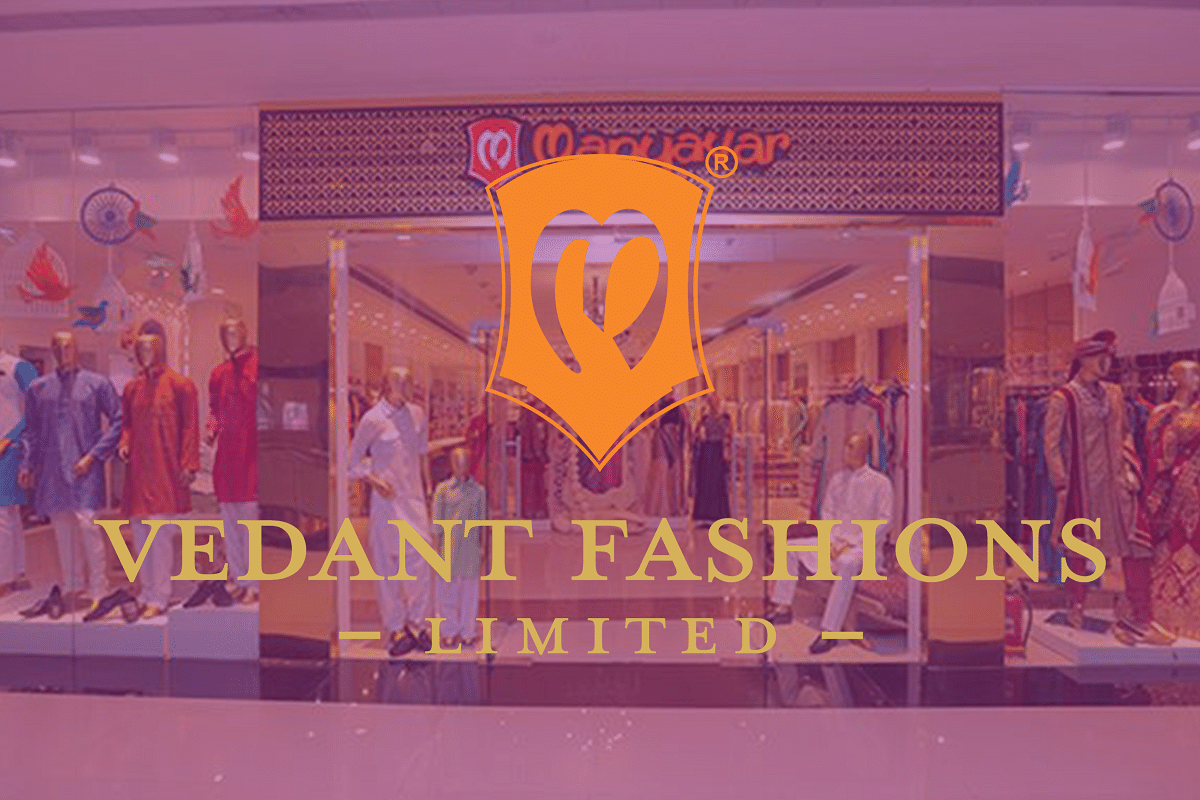News Brief
Vedant Fashions, Which Owns Top Brands Like Manyavar And Mohey, Launches IPO Amid Covid Woes
- Vedant Fashions Limited IPO will be an offer for sale where the existing investors and the promoters are expected to partially exit their stakes.

Vedant Fashions launches IPO.
Vedant Fashions Limited (VFL), the company which owns brands like Manyavar and Mohey, has filed a draft red herring prospectus (DRHP) for an initial public offering (IPO). The IPO will be an offer for sale where the existing investors and the promoters are expected to partially exit their stakes.
VFL is the largest company in the Indian wedding and celebration wear segment, according to the company’s DRHP. The company acts as a one-stop-shop for celebration clothing needs through its multi-channel outlets. Almost 90 per cent of its sales are made through exclusive brand outlets owned by franchisees, while the remaining sales come from large format store, multi-brand outlets and online sites.
About 70 per cent of its franchisees have been with the company for three or more years. In total, the company has 525 exclusive brand outlets spread over 207 cities and towns. The company has also ventured into the United States of America, Canada and the United Arab Emirates.
The company has built a strong brand which has allowed it to generate strong returns in a competitive market. These include values-based messaging themes focused on driving traditional cultural values, such as “Diwali Wali Feeling”, “Shaadi Grand Hogi”, “PehnoApniPehchan” “ApnoWaliShaadi” and “ShaadikaKharchaAdhaAdha”.
VFL has three major brands — Tvamev, Manyavar and Manthan. While Twamev is focused on the premium segment, Manyavar focuses on the mid-segment customers.
Manthan is the value brand offering. Its brands like Mohey focuses on the ladies’ festive clothing segment whereas Mebaz focuses on the south-Indian market. The company spends around 7 per cent of it revenues on advertising and marketing which indicates its seriousness about brand-building.
Revenue has degrown during financial year 2021 (FY21) due to the Covid-19 pandemic. Revenues have fallen from Rs 947 crore to Rs 625 crore, a decline of 34 per cent. Yet, the company’s margins have remained around 20-25 per cent.
The company has also adopted an asset-light structure where manufacturing is handled by third-party manufacturers. This is evident form the fact that the company generated Rs 915 crors of sales with Rs 81 crore of plant, property and equipment in FY20. The model also allows it to maintain a lean structure and focus on important tasks like brand-building.
Further, its strong brand ensures that the company can attract franchisees ready to build exclusive brand outlets. The company has also generated strong cash flows, and positive free cash flow, resulting in its debt free status. The company’s asset light model has allowed it to maintain profitability even during tough times.
Overall, the management has carved out a niche for itself in a competitive sector and built a financially healthy company.
Key Risks
Competition: The textile sector is largely composed of unorganised and smaller players. Further several retail stores and e-commerce platforms are launching their own brands, which might compete with established brands like Manyavar.
Covid Crisis: The business has already faced trouble due to Covid as 90 per cent of the company’s sales come through exclusive brand outlets, which might be shut down due to Covid. The company also focuses on the festive wear segment and any roadblocks in the segment due to Covid can affect the company adversely.
Dependence On Outsourcing: The company depends on several third parties to take care of its outsourcing needs. It outsources manufacturing and also depends on franchise-owned outlets to run its operations.
Brand Building: The company’s strong margins and return ratios stem from its focus on brand building and outsourcing several tasks. The strong brand power has allowed it to build its network of franchise-owned stores. Therefore, any damage to the brand could certainly harm the company’s prospects.
Introducing ElectionsHQ + 50 Ground Reports Project
The 2024 elections might seem easy to guess, but there are some important questions that shouldn't be missed.
Do freebies still sway voters? Do people prioritise infrastructure when voting? How will Punjab vote?
The answers to these questions provide great insights into where we, as a country, are headed in the years to come.
Swarajya is starting a project with an aim to do 50 solid ground stories and a smart commentary service on WhatsApp, a one-of-a-kind. We'd love your support during this election season.
Click below to contribute.
Latest